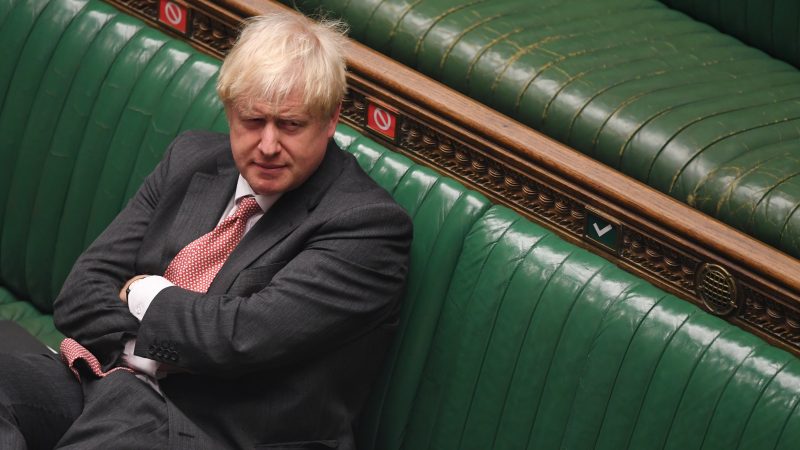
Where were you when you found out about England’s second national lockdown? It could have been tweets about leaks on Friday evening, or in the next morning’s papers, or watching the hastily arranged press conference on Saturday once the three-hour delay had passed. It was then that we were treated to what felt like several dozen unclear slides about infection rates and so on, ensuring that Boris Johnson didn’t have to answer questions before Strictly, and a speech that talked of “humility” but did not concede that time-limited tough national restrictions might have been a good idea when SAGE first recommended them. To say that the government is failing to learn from its mistakes during this crisis is an understatement.
Johnson appears to have more than one eye on his parliamentary party, as usual. While Tory infighting is serving as a distraction, and likely exacerbating public communication problems, the PM has not got a grip of that either. Like the (mistaken) government focus on balancing lives and livelihoods, allowing potential Tory rebellions to influence Downing Street’s coronavirus decisions only means neither job is done well. Tory backbench committee chair Graham Brady has said he will oppose the plans on Wednesday, as has Esther McVey, and there will be a significant number tempted to rebel particularly with Nigel Farage’s latest anti-lockdown project threatening to stir up scepticism. Labour will be voting in favour of the new measures this week.
Keir Starmer has a clear position on the fresh lockdown: you should have done it sooner as I advised, but better late than never. This is a unifying position on the left. Things are trickier when it comes to schools, however. The National Education Union has unequivocally demanded that schools be included in the four-week lockdown, yet the Labour leader is equally certain that they should stay open as confirmed on Marr. He describes this as “the price of the government’s incompetence”, because a circuit breaker over the October half-term would have enabled a 12-day school shutdown. Andy Burnham and Steve Rotheram are among those Labour figures backing the NEU over Starmer on this issue.
While coronavirus news and announcements affecting millions of lives and livelihoods must be recognised as most important, we must also look at internal developments in Labour the week after the antisemitism report and Jeremy Corbyn’s suspension. Although the equality body found the party responsible for unlawful acts, which bears repeating, the row over the disciplinary action against the former leader is threatening to eclipse the report. Labour left MPs expressed solidarity with Corbyn at a rally on Friday, a statement by seven unions was issued (including Unite, but not UNISON or GMB), and talks were held between Starmer and Len McCluskey over the weekend. I’m told a “way through” was offered and the ball is now in the leader’s court.
Corbyn allies have been remarkably quiet so far overall, but that is partly because there is hope on the party’s left that a way back for Corbyn can be found – either through persuasion or winning the argument on a technical level at the national executive committee (there are still concerns over whether the suspension was conducted correctly, or could be classed as political interference). Concerns will be voiced that only Corbyn was investigated after the Campaign Against Antisemitism submitted complaints against 15 other MPs including a couple of current frontbenchers. As Steve Richards has warned, agree with the suspension or not, a protracted battle that could end in a legal challenge carries risks for the Labour leader who doesn’t want to be seen as inward-looking at a time of national crisis.
Sign up to LabourList’s morning email for everything Labour, every weekday morning.



More from LabourList
‘Council Tax shouldn’t punish those who have the least or those we owe the most’
Two-thirds of Labour members say government has made too many policy U-turns, poll reveals
‘Two states, one future: five steps on the path to peace for Israelis and Palestinians’